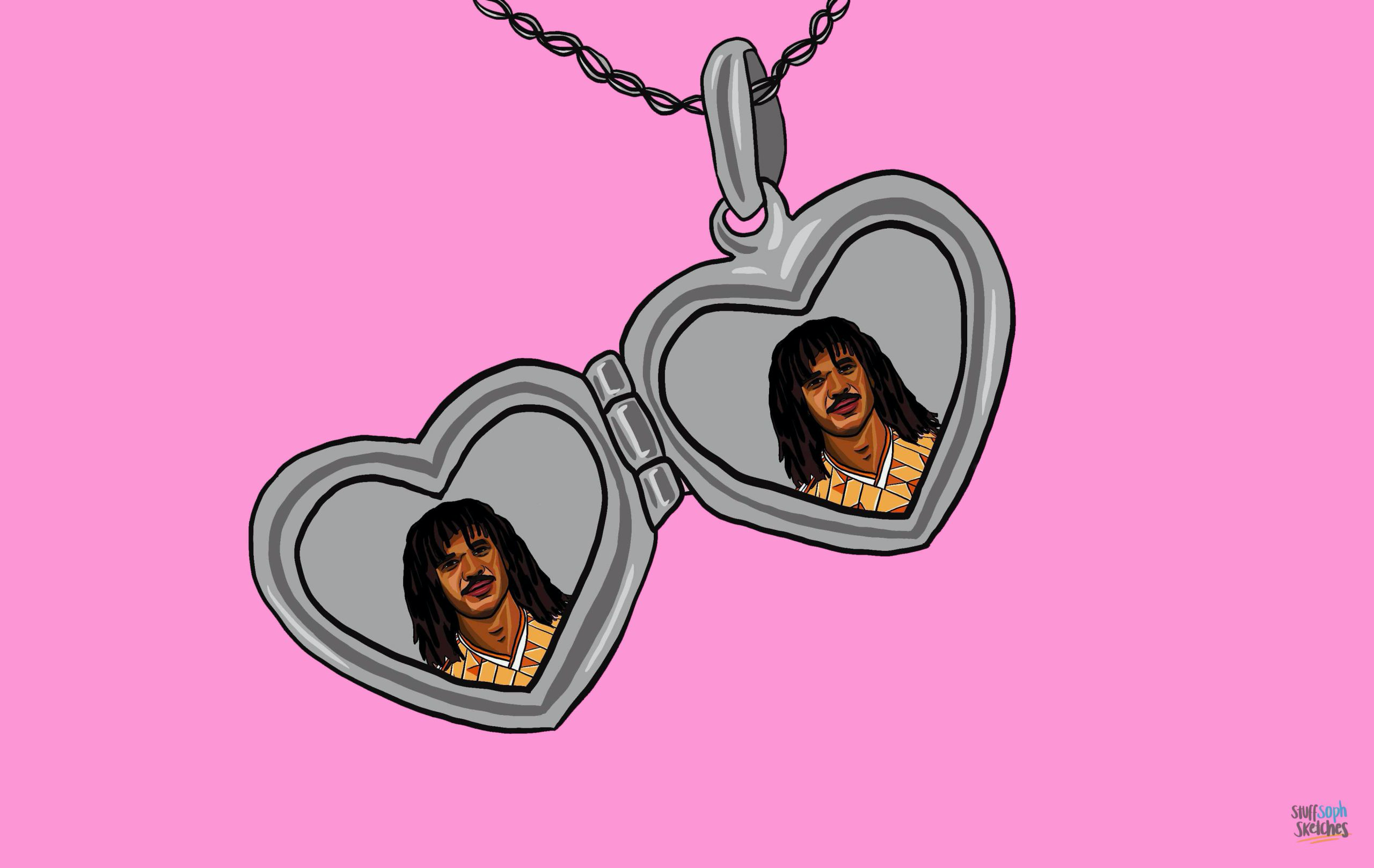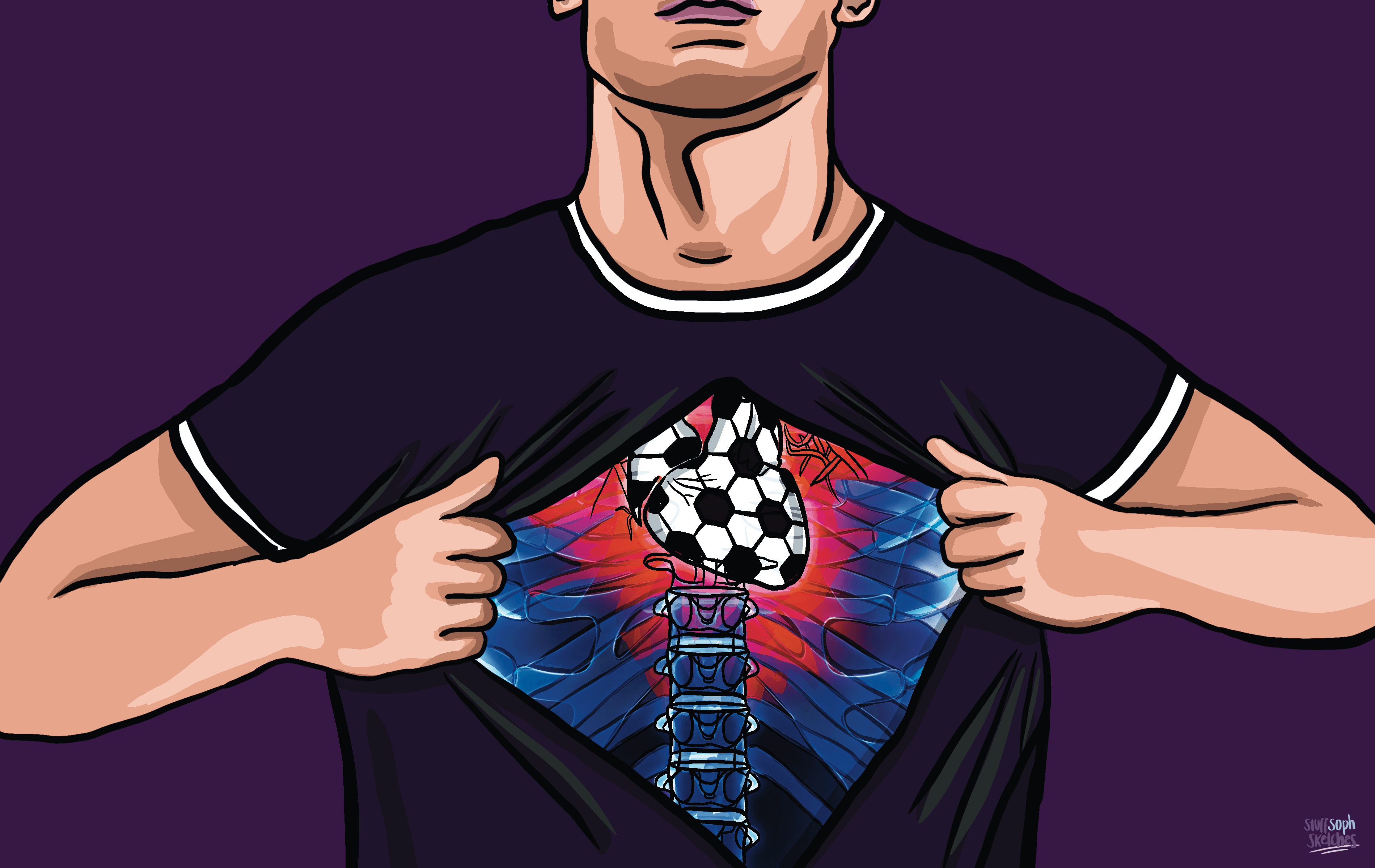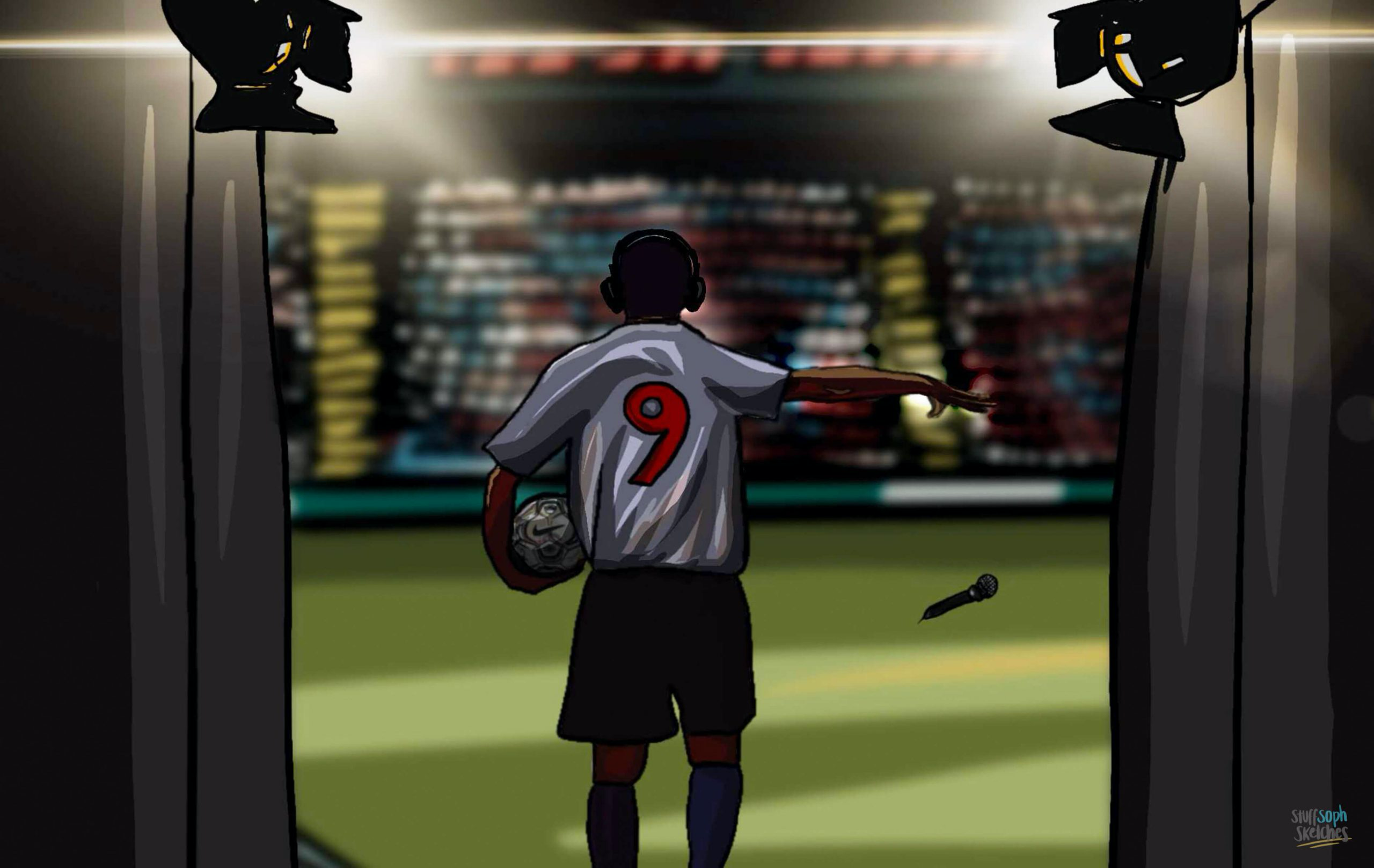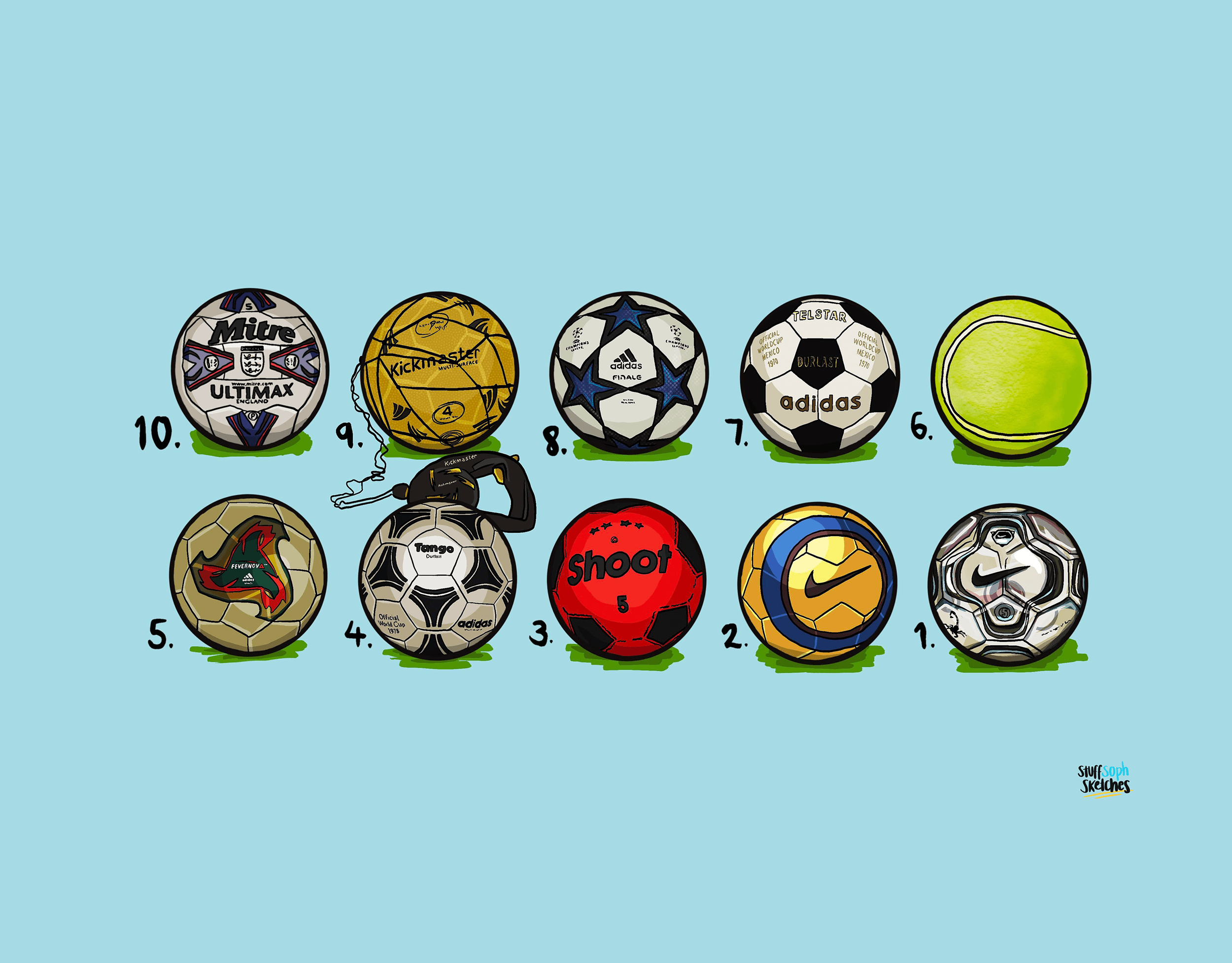In the summer of 1988, I was five-years old and, when turning on my family’s television, my life was about to change forever. There was a football match on one of the four channels available and so, not knowing any better, I sat down to watch. As I watched a team in white and a team in orange knock the ball around, little did I know that a tall moustachioed man with dreadlocks was about to ignite a flame inside me that has continued to burn to this day.
The team in orange were the Netherlands, with the USSR in white, and the match I had inadvertently tuned into was the final of the European Championships in 1988. The USSR had beaten Holland earlier in the group stages but the Netherlands, having beaten the West German hosts in the semi-final, had the opportunity to become the first Dutch side to win a major international tournament. Not that I knew any of this at the time of course, I imagine that I was simply enjoying watching the movement of the players and the ball, much the same way my cat seems to enjoy watching tennis (hopefully, I didn’t try and stop the ball with my hands like he does with his paws though).
I am well aware that this is an entirely unfair measuring stick, as I cannot state categorically that Gullit’s performance was even that good in the final. But what can I say? When you’re in love, you see what you want to see.
Such simple enjoyment all changed in a flash as a cross swung in from the right and a man, the like of which I had never seen before (men from my home town of Brixham in Devon did not sport dreadlocks in the 1980s and as for multi culturalism, well…) leapt from a crowd of players, raising himself above everyone else, both figuratively and literally, to power a header home and give the Dutch the lead. This was the moment in which my life would change forever. I didn’t know it then, but I had fallen in love with football and Ruud Gullit or Ruud Gullet as I knew him – don’t judge, I was five!
It is Marco Van Basten’s goal that is rightly remembered as the highlight of that European Championship final. Peeling away from his marker, he hit one of the greatest volleys ever seen, (if you’ve never seen the goal or have forgotten just how good a strike it was, I highly recommend that you look it up) as the Netherlands went on to win the game 2-0. It was Gullit, the first and only Dutch captain to hold this trophy aloft, who lived on in my memory – his movement, style, power and presence on the pitch were indescribable. I loved the way he seemed to puff out his chest as he played a pass one way and began to move in the opposite direction, dragging his marker all over the pitch as if he was toying with them. The opposition couldn’t touch him as he powered past tackles and made the ball bend to his will. His strength and technical ability were, and continue to be, the benchmark by which I measure footballers. I am well aware that this is an entirely unfair measuring stick, as I cannot state categorically that Gullit’s performance was even that good in the final. But what can I say? When you’re in love, you see what you want to see, and I was in love.
I remember it as months, but almost a year later, I once again turned on the family television and sat down to watch a game of football. This time a team in white and one in red were playing. As a six-year-old, I was aware that you were meant to support one of the teams, so asked my father who that ought to be. My Dad looking up at the television and responded: ‘The white team have a wanker in a headband, we’ll support the red team’. The reds were Nottingham Forest, the white team were Luton Town and the offending player was Steve Foster. From that moment on, I supported Nottingham Forest and cheered on my new team and favourite player Nigel Clough to victory, as Clough scored twice, and Forest won the League Cup in 1989. This football thing was easy, I thought, the team that I want to win always does and the players I like always score.
Fast forward a year and football had taken a hold over me. Nigel Clough posters adorned my walls, my collection of Match magazines was slowly increasing and, after two years, I would get to see Ruud Gullit again. Unlike today, without the internet or continuous television coverage, European football was almost impossible to watch, so I had not seen the man who had started my love affair with football in almost two years. But at Italia 90 I would get to watch him in action and felt certain that I would get to watch my two favourite players face-off. Especially as England and the Netherlands were in the same group and were scheduled to play against one another.
Whilst the tournament in 1988 opened an unknowing five-year-old boy’s eyes to the wonder of football, Italia 90 would teach him the harsh lessons of a love affair with the game. With the confidence and wonderful naivety of a seven-year-old, I believed that everyone recognised Nigel Clough as a footballing genius. Overjoyed that Nottingham Forest would be represented at Italia 90 by Stuart Pearce, Des Walker and Steve Hodge, I was a little perplexed that the great Bobby Robson had not named Forest’s best player in the squad for this competition.
Albeit upset, at least we still had three players in the squad and I’ll still get to see Gullit, I thought. Except, the Gullit of Italia 90 was a shadow of the powerhouse attacking midfielder I had witnessed two years earlier. Hampered by a knee injury that had seen him play only a handful of games the season before the World Cup, Gullit lacked match sharpness and looked off the pace. Again, not that I really knew any of this, I just felt let down having told my friends that the Dutch had a great player named Gullet whose contribution turned out to be minimal. The Netherlands scraped through the group stage before being dumped out of the competition by West Germany in a match marred by an ugly incident between Frank Rijkaard and Rudi Völler.
At least England were still in the competition, progressing somewhat unexpectedly to the semi-final against West Germany. Gazza was winning the hearts of the nation, but it was the wide midfielder Chris Waddle who had captured my attention. No Clough. No Gullit. No problem. I had a new hero…Chris Waddle. But why did I do it to myself?! For those who don’t know, the match ended 1-1 and went to penalties. It was 3-3 when Staurt Pearce, Nottingham Forest’s captain, stepped up to take his penalty. He will definitely score, I thought to myself, he doesn’t miss. Pearce struck the ball to the left of the centre and, despite diving to his right, Bodo Illgner saved the ball with his legs. Germany, as you would expect, converted their next spot kick. Then up stepped Chris Waddle to keep England in the tournament. However, it wasn’t to be for England or Chris Waddle, as he smashed a ball so high and wide that NASA have been following its trajectory for the past twenty-nine years.
My footballing world crumbled around me. My favourite players were either at home, had played poorly or had not scored when they should have done. What was going on? I couldn’t stop myself and the tears began to flow, football had broken my heart for the first time and unfortunately not the last.
After the World Cup, Gullit returned to Italy playing for Milan and Sampdoria before seeing out his playing career at Chelsea. Whilst I followed his career and always had a soft spot for him, my adulation for him never again reached the post-1988 European Championship level; feeling betrayed by his performance at Italia 90, Gullit was no longer my favourite footballer. A situation that I’m sure, despite having never met him, he continues to regret to this day!
Just as with Gullit, my memories of Clough are shrouded in the nostalgic, rose-tinted glasses of a young boy. He wasn’t the quickest player, but in a side like Forest, one that was built around his talents, he was brilliant. His vision and reading of the game were second-to-none, he created chances for teammates as well as weighing in with goals himself, and with his father as manager, it seemed impossible that he would ever leave. But he did. After Forest’s relegation from the Premier League in 1993, Clough signed for Liverpool, again breaking my heart in the process. The day after the transfer was announced, I locked myself in the bathroom and cried having convinced myself that he would never leave. Clough made me cry once more when he was announced as manager of Derby County in 2009, but the hurt wasn’t the same, the scars were not so deep, and the betrayal not quite so raw.
After the World Cup, Chris Waddle continued to play in France for Marseille. I followed his career through Transworld Sport, a show broadcast on Channel 4, before he transferred to Sheffield Wednesday for the 1992-93 season. He was selected as the Football Writers Association Player of the Year in 1993 and in everyone’s eyes, except for manager Graham Taylor’s, should have been recalled to the England national team. But it wasn’t to be. Injuries slowed his game and he ended up winding down his career with lower league teams, including my local side Torquay United, where he played for a short period.
I’m grateful to my first footballing loves for the lessons that they have taught me and, while I have been unable to stop myself from falling in love in the years that have passed (Alessandro Del Piero, Andrea Pirlo and Pep Guardiola to name a few), I don’t give my heart away so freely anymore. That said, if I was given the option to go back and change things – to not turn on the television and fall in love with Gullit or football, save myself the many heartbreaks that have followed – I wouldn’t even consider it for a minute. Football never feels as good as when you are falling in love with it.



